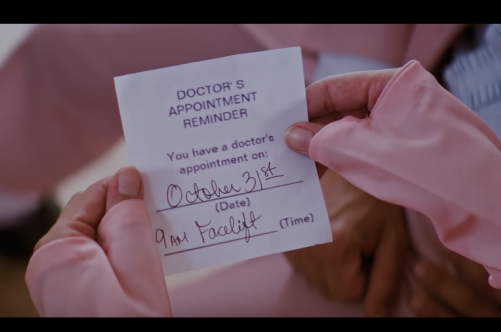Financial Health: Save Your Way to Less Stress
As difficult as it may be to believe, a “hole” in your wallet or purse, can lead to a hole in your gums or stomach. Why? Because the stress of not having money to pay for things you actually need can have a damaging ripple effect on your health and interpersonal relationships.
You may be lusting over another handbag, some shoes, or a frappucino, but it’s important to ask yourself if you really need it. Psychologically, it’s the same as asking yourself if you need the extra calories packed into that second slice of pizza. You might love it now, but you might realize you could have made a better decision when you look back on it.
Surprisingly, finance-driven stress goes far beyond buyer’s remorse, and could even ruin your health if your money situation spins out of control. WebMD even lists finances as a common stressor that can trigger long-term diseases and bust your budget even more, leading to more medical expenses and more financial trouble.
As with any problem, the first step is to know your weakness so you can build up strength and resistance. Ask yourself what’s causing your financial stress. Money may be the go-to answer, but you still might have to ask more questions to get to the root of your problems:
- Are your expenses are greater than income?Are you spending more than what you are earning, maxing out your credit card, taking payday loans for trivial things, or taking some cookies from your retirement fund? A dangerous spending habit could turn into an addiction, one which digs a deeper hole for the future.
- Are you living paycheck to paycheck? You count the days by 15s or 30s, hoping you’ll make it to the next. Even your toilet paper is replenished every payday because you always totally wipe out your salary paying off expenses and debts from things you did not need to buy. Cutting costs to make sure you don’t need to live life paycheck to paycheck can help reduce that monthly bundle of stress.
- Debt: Debt can be the source of countless divorces and family feuds, compounding a sense of shame or disgrace that often destroys relationships between friends and family members. Paying it up off the top of your salary over a long period can make you feel like you’re on a treadmill, but it’s the kind that causes weight gain and makes your life lighter and easier.
- Do you lack of financial plan? This is big! You might feel like you’ve lost control of your finances because, to start with, you don’t have a goal or financial anchor. Do you feel like you’re sitting there in a dingy that floats aimlessly in the middle of an ocean of spending?
The good news, even when your personal financial report is bad, is that you can change a few habits to get yourself together.

When you find yourself perseverating over bills and debts, it can also be an ideal time jump into action, via a class or a gym. Exercise or join a meditation class to ease out the worries. Keep your mind healthy and your body fit. In fact, this is even more important when problems strike. You’re better armed and focused to solve problems when you are healthy.
You can exercise your mind in a variety of ways, too! Start by changing your financial perspective to grasp the notion that even in tough times, you’re still in control of your destiny.
Think of willpower like a muscle: exercising more of it in your financial decision-making, as you do with food choices, becomes harder as the day goes on. If you have the option to make financial decisions earlier in the day, rather than later, you’ll be more likely to make the smarter decision. If you’re having trouble with a decision later in the day, recognize that your willpower might be tapped. If that’s the case, consider putting off the decision until the next day.
Furthermore, you can think of establishing a money goal in a similar way to establishing a goal for weight loss or physical fitness. If you put yourself in a frame of mind that you can conquer your financial challenges and master your relationship with money, you shall prevail. In their book “Happy Money: The Science of Smarter Spending,” behavioral scientists Elizabeth Dunn and Michael Norton say that buying experiences instead of things, focusing on having more free time instead of getting more money, and giving money to charity can all make you a happier person – one who’s happier about how you’re spending money.








